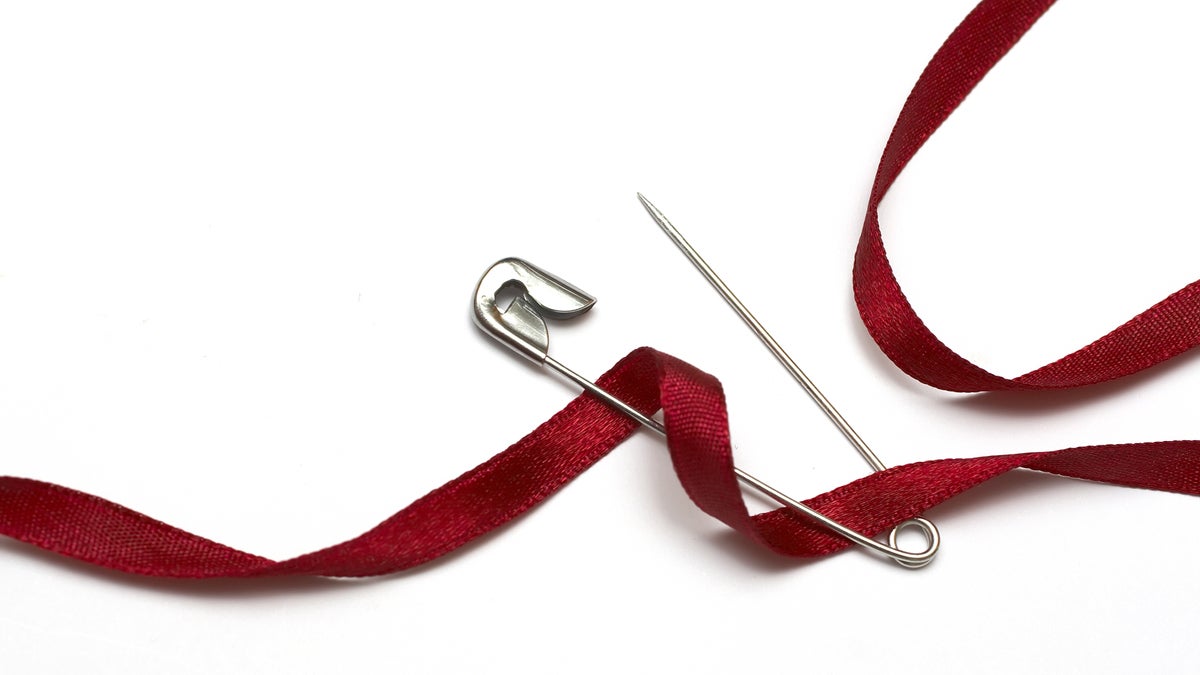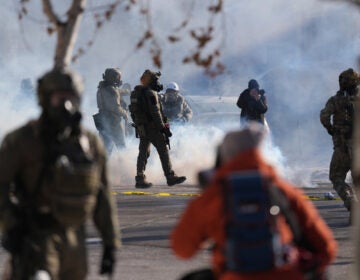Among disparate fears, one common thread is search for safety

(pcatalin/Big Stock Photo)
When my daughter was born, my mother bought some red satin ribbon and snipped it into 8-inch lengths. “Here,” she said solemnly, “tie these on her car seat and her crib. The changing table, too.” My mother kept one piece of ribbon, which she planned to twist into a bow and safety-pin to her underwear.
When I voiced doubt in this practice — not doubt in its efficacy, but disbelief that she actually did it — my mother unzipped her slacks, right there in the living room, and showed me the shiny loops. “Every day,” she said, and zipped back up.
The ribbons were meant to ward off the evil eye, a practice my mother had learned from her mother, Sarah, who no doubt got it from her mother, Ethel, and so on, through a line of fierce and superstitious matriarchs right back to the shtetls of Odessa. Compliments could tempt the evil eye, so if a stranger remarked on my long lashes or olive skin, my Bubbe would deflect the praise with a fervent “keyn eynore!” (“No evil eye!”) and a brusque wave, as if shooing a housefly. Then she’d spit three times — “poo, poo, poo” — for good measure.
Later, I followed this folkloric trail back to the Torah, where it turns out red thread was both a symbol of fertility and a shopping-list item for the holy sanctuary. The dye apparently came from a certain desert-dwelling worm, bringing a reminder of life’s most humble forms into the sacred temple.
Follow the worm-red thread: my great-grandmothers, and maybe yours, lived at a time of famine, conscription, and pogroms, an era before vaccines, antibiotics, or pasteurized milk. So there, terrible and uncontrollable world: Spit in the face of praise and tie on a small, bright flag.
I’ve been yearning for a talisman, myself, the past few weeks, ever since the surreal, early hours of Nov. 9. When I went to break the hard news to my teenager — yes, he won, and yes, you have to go to school — she refused to lift the covers.
“You know about modernism, Ama?” she murmured from her pillow. “Futility. Alienation. Hopelessness. That’s how I feel right now.”
“I’m sorry, sweetheart,” I said when I brought her some coffee, swirled with soy creamer and just the right amount of sugar.
“For what?”
Oh, everything. A volatile, self-aggrandizing, frighteningly unqualified racist demagogue as president-elect. Orlando and San Bernardino and Sandy Hook. Polar ice caps salivating into the sea. Anyone who thinks black lives don’t matter. I wanted to loop a huge red ribbon around the house and cinch it tight.
When she was a baby, it was easy to believe we could shield her. We hired a professional childproofer, who spent 90 minutes casing our house and taking copious notes. I could tell he thought the place was about as safe as, say, the eastbound expressway at rush hour. In the end, we agreed to have him install three wooden stair gates, stopper the outlets, and screw latches into every cupboard door.
Still, things happened: The baby fell backward from a kitchen stool while both of us stood within arm’s reach; at four, she tumbled down a flight of wooden stairs and landed on the bathroom threshold, startled but intact.
The pursuit of safety is a self-consuming frenzy: the more you obsess about protection, the more the house feels fraught with danger. Not just the house — the whole world. Sexual predators, mercury-marbled tuna, cows plumped on hormones that leach into every carton of milk. Not to mention train derailments. AK-47s in the hands of traumatized teens. ISIS fighters on “holy missions” that blinker their capacity to care.
Is my daughter less safe than her grandmothers were, growing up in the mythologized mid-20th century? Bad things happened then, too: My aunt was bitten by an organ grinder’s monkey and once fell into a bucket of lye. Kids died of polio, from drowning, in streetcar accidents. There was a war.
But here, in the 21st century’s jittery dawn, we feel more vulnerable, we believe we’re less safe, and those convictions drive our actions, shape our politics. Here’s the rub: The more I barricade myself behind alarms and gates, the more I buy my way into “better” neighborhoods and “safer” schools, the less likely I am to seek shared answers, to reach out in solidarity or need.
Those New York City cops I saw a couple of weeks ago — the ones posted by a fleet of marked vehicles as they guarded the 8th Avenue holiday kiosks — did not make me feel secure. Instead, their presence threw a troubling pall of suspicion and wariness — Does that man look menacing? How about that woman, with the pulled-down hat? — over my usual curiosity and joy.
Naomi Shihab Nye, a Palestinian-American poet, wrote about the screeching ironies of living in a state of war:
Soldiers stalk a pharmacy:big guns, little pills.If you tilt your head just slightlyit’s ridiculous.
Yes. That’s exactly how it was: a phalanx of New York City’s finest men in blue, knobby rifles slung across their chests, eyeing shoppers as they haggled over $6 cashmere scarves and elephant-shaped purses. Ridiculous.
But if I tilt my head the other way, I’m terrified. That’s how it’s been since the election, an endless, enervating ping-pong between absurdity and abject fear. A red-alert rumble, deep in my gut, that no amount of sweetened coffee can take away.
Recently, though, I read about another culture’s story of red threads. The Chinese believe that invisible scarlet filaments link the soul of every newborn to the people who will be significant in her life. As she grows, the threads become shorter, drawing near all those destined to be her allies, soul mates, and protectors.
It’s been years since we bequeathed our safety gates to cousins. But each night, one of us sets the house alarm, an incantation of beeps, at the top of our steep wooden stairs. Outside, the neighbor’s dog barks and barks, the H bus grinds uphill, the moon rises in a godless sky. On the alarm panel, two glowing eyes — one gold, one red — keep watch throughout the night.
And I imagine the same ritual, or some version of it, happening up and down the block, all over town, a wave that chases nightfall around the world. Some are mumbling a bedtime prayer; some are lighting a paraffin taper. Some, maybe, are tugging, for luck and love and fevered hope, on that red bow, then crawling into bed to sleep the fitful, dream-drunk sleep of parents everywhere.
WHYY is your source for fact-based, in-depth journalism and information. As a nonprofit organization, we rely on financial support from readers like you. Please give today.




